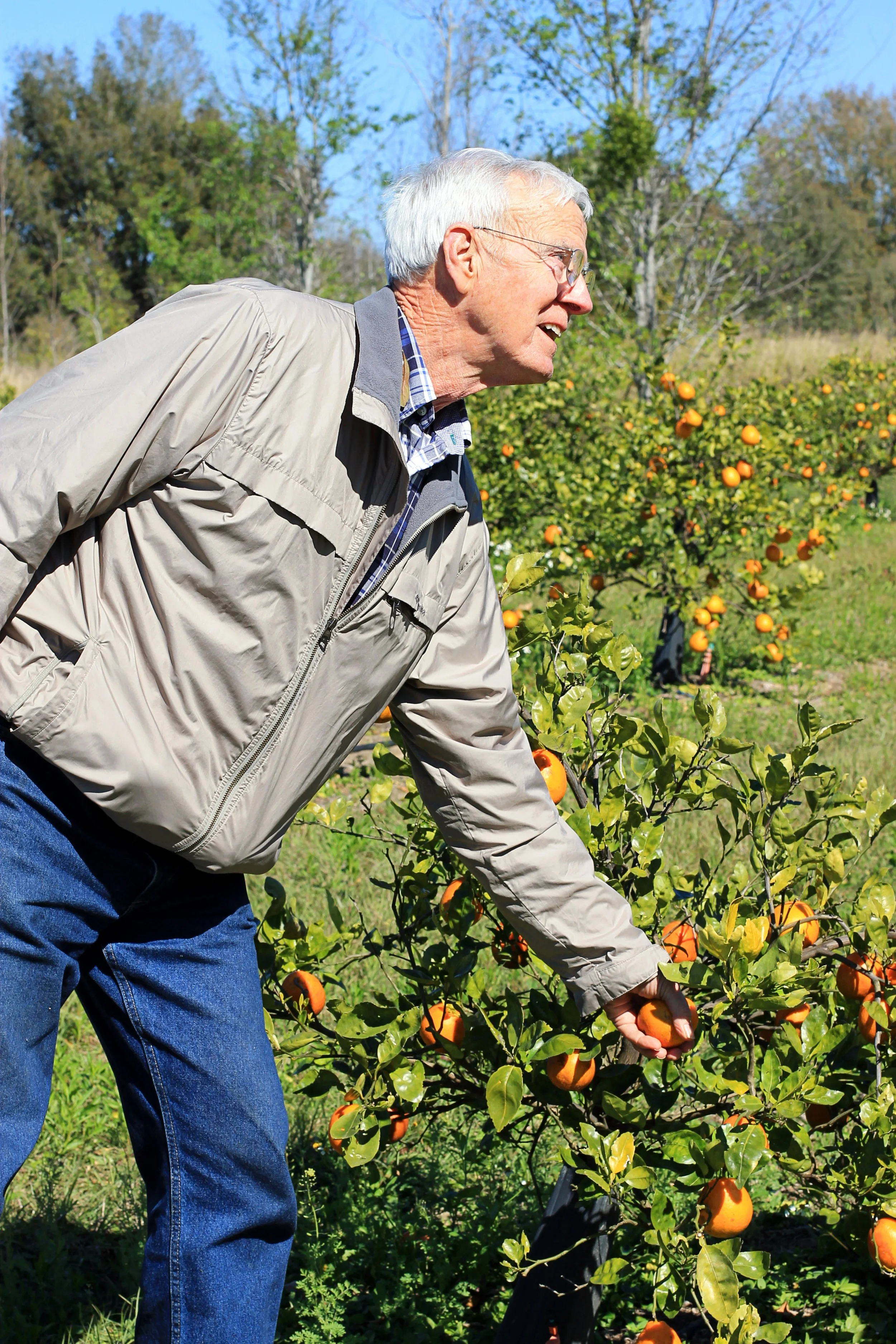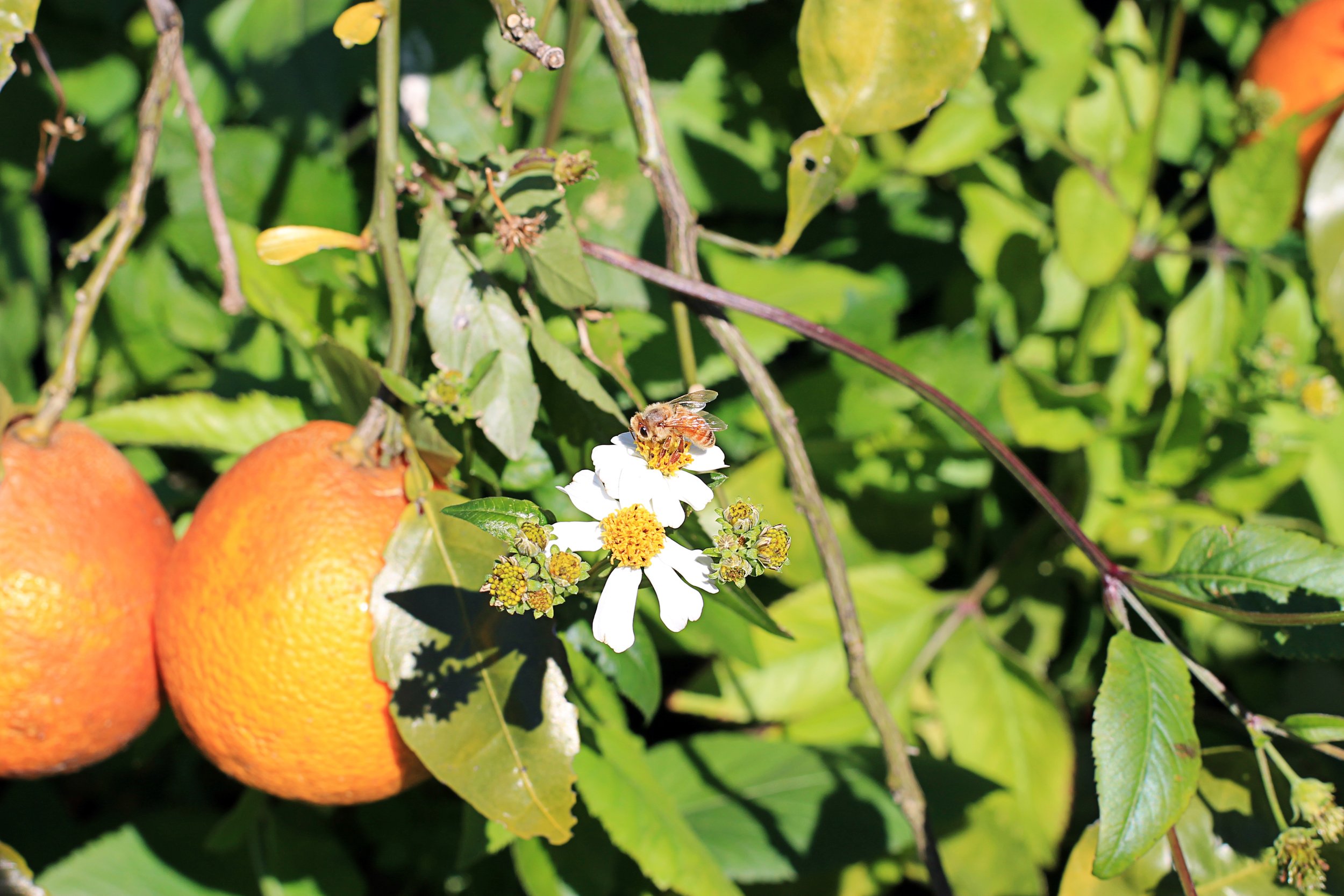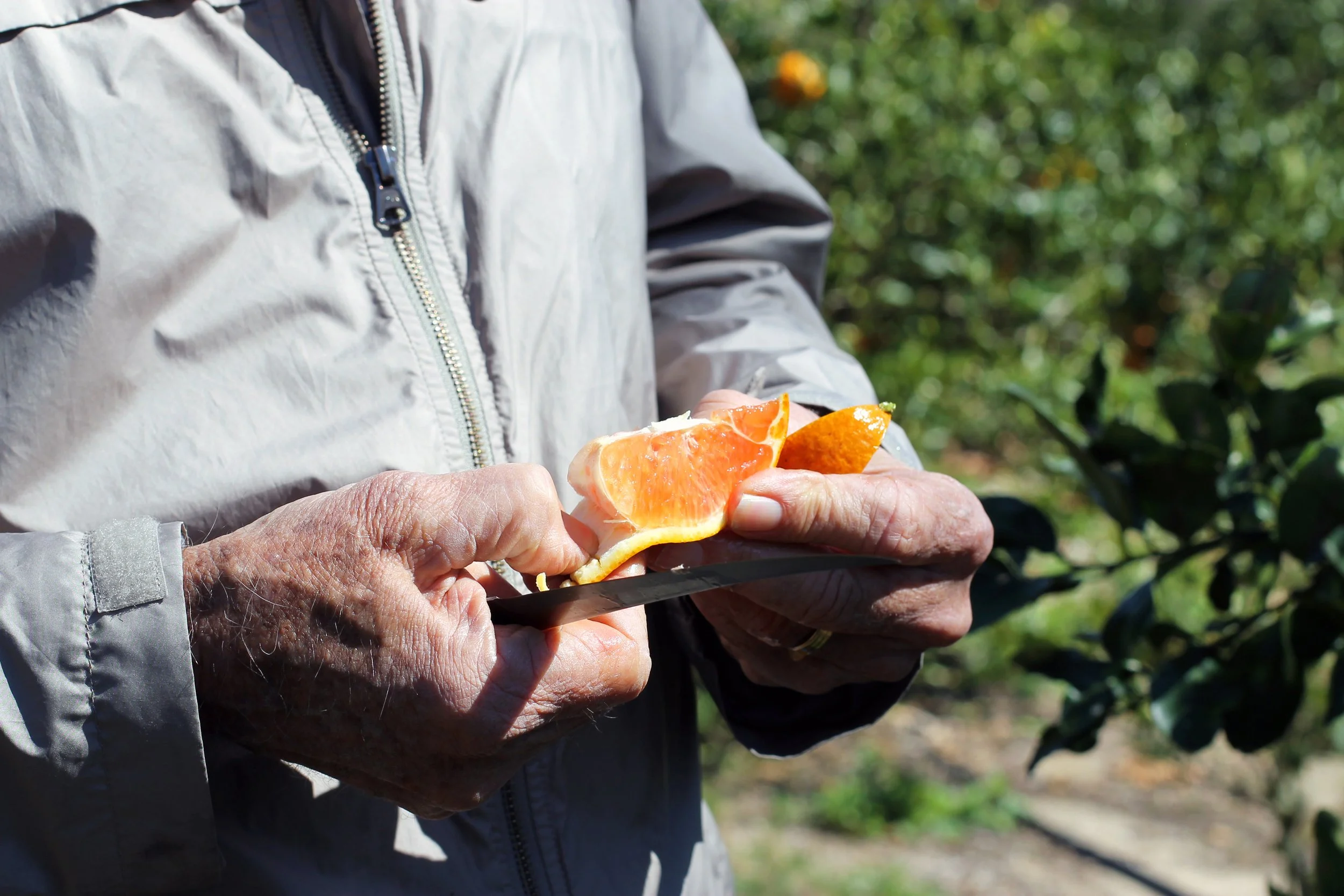Uncle Matt's Organic citrus farm 'uncovering' old, timeless methods
Benny McLean
“Make the right turn opposite the radio tower onto a clay road,” Benny tells us on the phone. We almost miss it, braking to pull past the mailbox and onto red clay that stands out of place in the landscape. Surrounded on all sides by dwarf trees near-overwhelmed with orange abundance, we arrive at a clearing that opens to the prototypical southern farm house–a large white colonial with tall columns overlooking a welcoming front porch. A few old oaks shading the worn driveway seem the only non-citrus trees for acres if not miles.
On this porch, the chosen beverage is orange juice rather than lemonade or sweet tea. Benny rises each morning to pick 4 oranges he then squeezes to fill 2 glasses–one for him and one for his wife. From one oak tree swings a knotted old tire, tied only inches above the divot worn into the soft earth from steady use by his grandchildren He plays favorites with them during visits, based on who has or hasn’t eaten at least one orange.
Benny can’t help but bring work home. He’s surrounded by work on all sides. He doesn’t seem to mind.
As we follow him through the groves, he pulls oranges fresh from the trees then peels them for us with a knife and an expert hand. At home in these groves, he begins to tell us what he knows about them…
Deep Roots in Florida’s Groves.
Years past rather than present may inspire the future of Florida citrus.
Uncle Matt’s is an extended family of citrus farmers in Clermont. Generations deep, they’ve returned to their roots in the ways they grow Florida’s most iconic crop.
Benny McLean is Uncle Matt’s father. The patriarch of the McLean Family, he is decades and generations into the family business. He’s also the only McLean to stray from family farming traditions, by keeping with industry advancements over the course of his long career.
Organic citrus is grown without the use of chemical pesticides that increase yield but can damage the integrity of the fruit. Post-college and after exploring alternate career opportunities, Uncle Matt returned to citrus after finding a niche market for organic juice overseas. In researching organic farming, he found that farming organically could be profitable while improving the quality of the soil and his yields.
Benny tells that a conversation between himself, Matt and his father confirmed Matt’s intuitions about the potential of organic farming. Benny quotes his father: “we didn’t have a name for organic then, that’s just how it was done.”
The decision they made was a statement: if it worked then, it can work now.
From that discussion, the direction of the McLean family’s Florida farming heritage took a detour back on course–deciding collectively they would now farm in the ways their family had always done, save for recent decades. How it was done, became how it is done for the McLeans. The only significant difference is that there’s a name for the way now.
A honey bee pauses to pollinate an orange blossom in the groves surrounding Benny McLean’s home.
An orange is organic based on how it is grown, or “raised” as Benny calls it. At a time when people are searching more and more to understand what they’re putting into their bodies, Benny has 6 decades of answers–that inform in ways Google searches can’t. He shares that the most significant difference in organic farming and standard-practice modern farming is the use of chemical pesticides, herbicides and fertilizers.
The use of these chemicals limits crops by tying-up valuable nutrients from produce. Zinc and Manganese, the most important of these and necessary for a healthy immune system, are reduced in the process. He suggests that perhaps the rapid increase in disease rates correlates with unhealthy and increasingly available foods that sabotage our immunities.
That his family farms organically doesn’t mean Benny doesn’t protect his crop. He has simply learned to do so in more delicate ways. He shows us how much of the pest control is done on his farm, opening a box from a shipment he receives weekly from the University of Florida and pulling out a vial full of what look like fruit flies. They’re actually small wasps, he tells us–though they won’t sting. Not us at least. They protect the oranges when released by targeting pests that grow on his trees. He ties these vials to each tree, each week.
Energy is perhaps the most important focus of his lesson–that what we put in our bodies gives us negative or positive energy. So much of the ways our foods are processed remove energy, and rather than nourishing our bodies leave us craving more to fulfill a void left by compromised foods. Many of the foods we eat then to give us energy, are actually draining us of it.
Benny slices an orange with a practiced hand, showing off the rich color and unique qualities of the organic oranges he grows that go into Uncle Matt’s Organic orange juice.
Of the 500,000+ acres of dedicated citrus land in Florida, 5,000 are certified as organic. The McLeans and Uncle Matt’s extended family own and lease some of that land, the only groves that grow a product with a name and a brand. They must be doing something right. With less than 1% of Florida’s citrus groves, they have juice in stores nationwide: distribution throughout Florida in Publix stores, and on shelves nationally at Whole Foods.
In moving forward they’re continuing to uncover old methods that prove timeless–as they redesign them working with modern tools. A tree he shows us is covered on 3 sides by a tent that gathers mist from irrigation to protect and encourage the plant’s growth. Pushed to the edges of the grove are pomegranate trees they’re experimenting with; down the road are peach groves. Uncle Matt’s is growing, by experimenting in new ways with old ways.
Leading by example, they’re showing that what has always worked will always work.
This story was written for Orlando Business Journal and was originally published on their website here.




